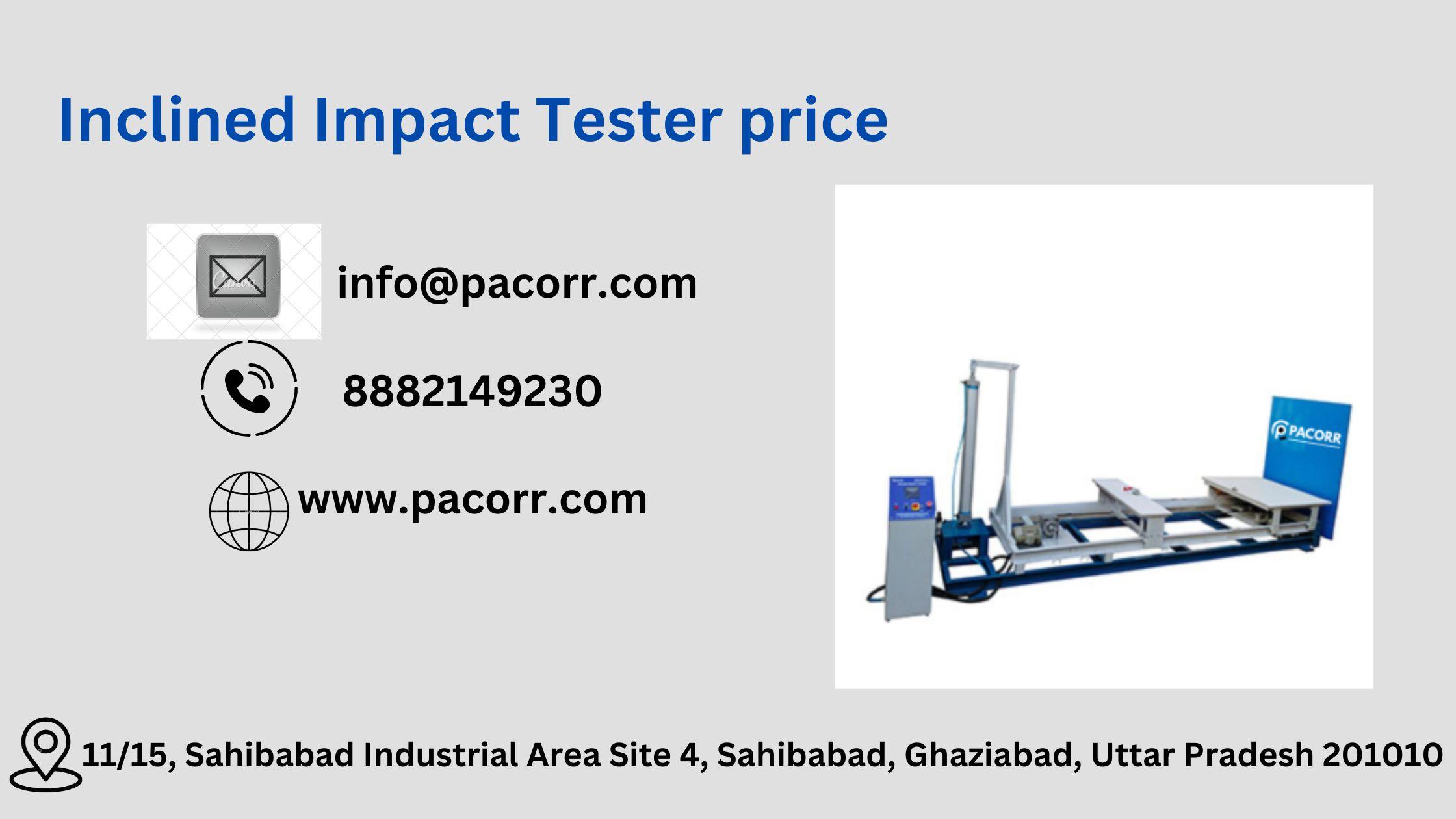Understanding the Inclined Impact Tester: Ensuring Durability in Packaging Materials
In today’s competitive market, packaging plays a critical role in protecting products during transportation and storage. However, the durability of packaging materials is often tested by the impacts they might face during handling. This is where the Inclined Impact Tester becomes an invaluable tool for manufacturers. The Inclined Impact Tester is specifically designed to simulate the forces that packaging might encounter when subjected to impacts, drops, or other dynamic events during transit.
What is an Inclined Impact Tester?
The Inclined Impact Tester Price is a sophisticated piece of testing equipment that evaluates the resistance of packaging materials against impact forces. The tester operates by placing the package on an inclined plane and then allowing it to slide down at a controlled speed, eventually colliding with a stationary object or wall. The impact simulates real-world scenarios where a package might be dropped or subjected to sudden stops during transportation.
This type of testing is crucial for ensuring that the packaging will not fail under stress, thereby protecting the contents from damage. Manufacturers can use the data obtained from the Inclined Impact Tester to refine their packaging designs, selecting materials and structures that provide the best protection.
How Does the Inclined Impact Tester Work?
The operation of the Inclined Impact Testing Price is straightforward yet highly effective. The testing process involves the following steps:
- Preparation: The package is placed on the inclined plane of the tester. The angle of the incline and the height from which the package will be released can be adjusted according to the test requirements.
- Release and Impact: The package is released and allowed to slide down the incline under the influence of gravity. The speed and angle of descent can be controlled to simulate different impact scenarios. The package then collides with a fixed obstacle, mimicking the impact it would face during actual handling.
- Data Collection: Sensors and high-speed cameras often accompany the Inclined Impact Tester to capture detailed data on the impact force, the deformation of the package, and the overall integrity of the packaging material post-impact.
- Analysis: The data collected is then analyzed to determine the resilience of the packaging material. This analysis helps manufacturers identify potential weaknesses and areas where improvements can be made.
Key Features of the Inclined Impact Tester
- Adjustable Incline: The tester allows for the adjustment of the incline angle, enabling the simulation of various impact conditions.
- Customizable Speed: The speed at which the package travels down the incline can be customized to replicate different handling scenarios.
- High Precision Sensors: Modern Inclined Impact Testers are equipped with high-precision sensors that accurately measure the impact force and other relevant data.
- Robust Construction: Designed to handle a wide range of package sizes and weights, the Inclined Impact Tester is built for durability and repeated use.
Applications of the Inclined Impact Tester
The Inclined Impact Tester is used across various industries, including:
- Consumer Goods: To ensure that products like electronics, household items, and perishables are safely delivered without damage.
- Pharmaceuticals: To test the packaging of medical supplies, ensuring they reach their destination intact.
- Automotive: For testing the packaging of car parts and other heavy components to ensure they withstand transportation stresses.
- Logistics: To develop packaging solutions that can handle the rough handling often experienced in supply chains.
Benefits of Using an Inclined Impact Tester Price
- Improved Product Safety: By testing the packaging under controlled conditions, manufacturers can identify and mitigate risks, leading to safer products.
- Cost Savings: Preventing damage during transit reduces the costs associated with returns, replacements, and customer dissatisfaction.
- Compliance with Standards: The Inclined Impact Tester helps companies meet international packaging standards, ensuring their products can be shipped globally without issues.
- Enhanced Reputation: Products that arrive in pristine condition contribute to a brand's reputation for quality and reliability.
Conclusion
The Inclined Impact Teste is an essential tool for any manufacturer looking to ensure the durability and safety of their packaging materials. By simulating real-world impact scenarios, this tester allows for the identification of potential weaknesses in packaging design, enabling improvements that protect products during transit. Investing in an Inclined Impact Tester not only helps in meeting industry standards but also enhances customer satisfaction by ensuring that products arrive in perfect condition.

